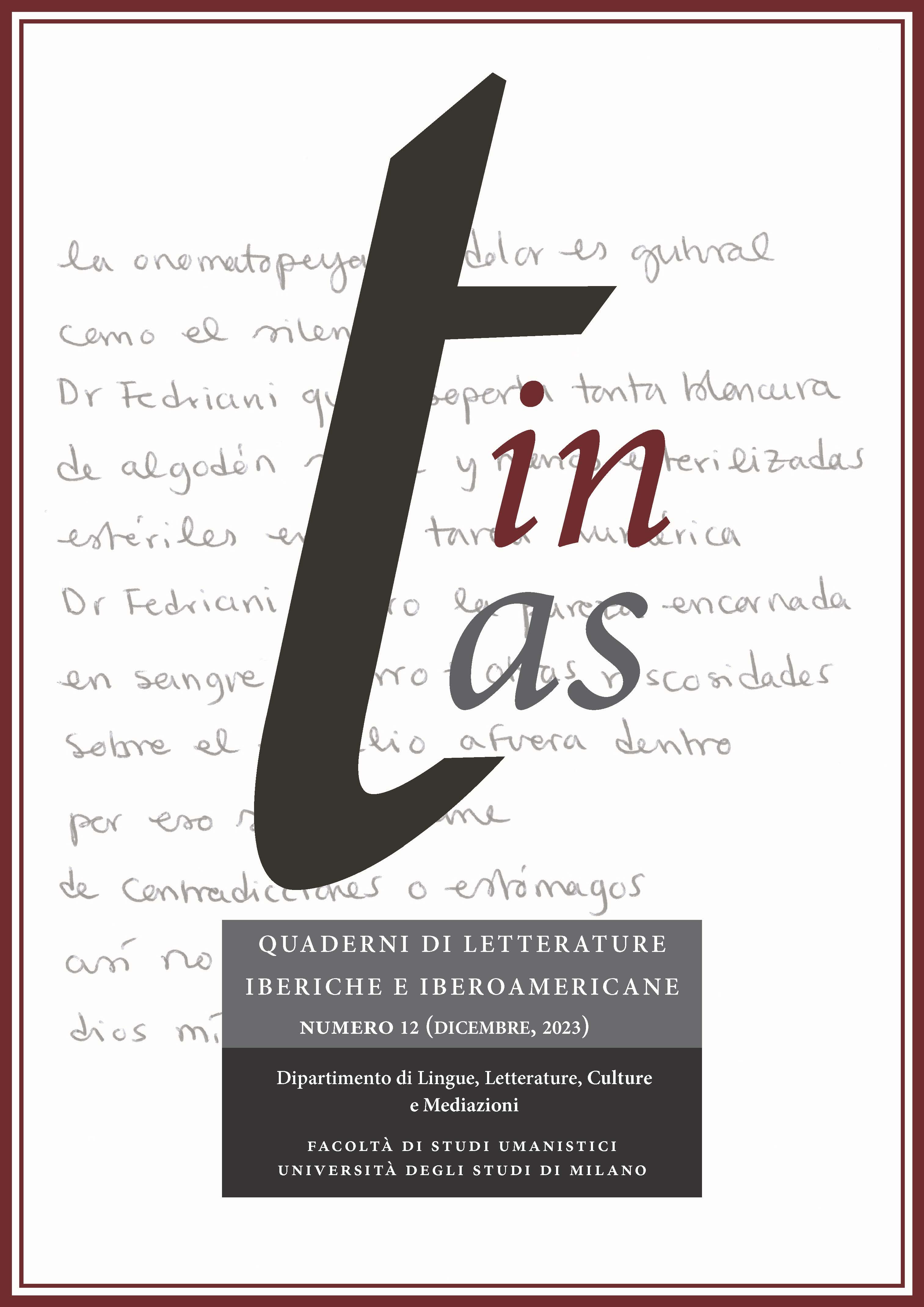El discurso bajo sospecha en la dramaturgia española contemporánea: una mirada de Sanchis Sinisterra a María Velasco
DOI:
https://doi.org/10.54103/2240-5437/22398Keywords:
contemporary Spanish theatre; new dramaturgies; theatrical discourse; insufficiency of the word; freedom of expressionAbstract
Although the dramaturgies developed in Spain from the 1970’s to the beginning of this century make up a plural and aesthetically heterogeneous discursive field, we can find in different authors a certain similarity in terms of the discursive problematization on the value of the word. Sometimes sought, sometimes diagnosed, the crisis of the word -its insufficiency or innocuousness, its warlike oraddictive power, etc.- runs through the poetics of playwrights such as Angélica Liddell, María Velasco, Alberto Conejero, Juan Mayorga or, before that, José Sanchis Sinisterra. In this article, we will investigate the aesthetic embodiment of the crisis of the word (or of discourse under suspicion) that manifests itself, perhaps as a symptom or generational trait, in recent works of Spanish drama. On the one hand, we will observe how, in this reduced corpus, debates on the authorial crisis inherited from the 20th century (with emphasis on the philosophy of theatre) are recovered and how, on a historical level, a traumatic relationship with memory and with the legitimacy of the story is still in vogue, despite almost four decades of democracy.



